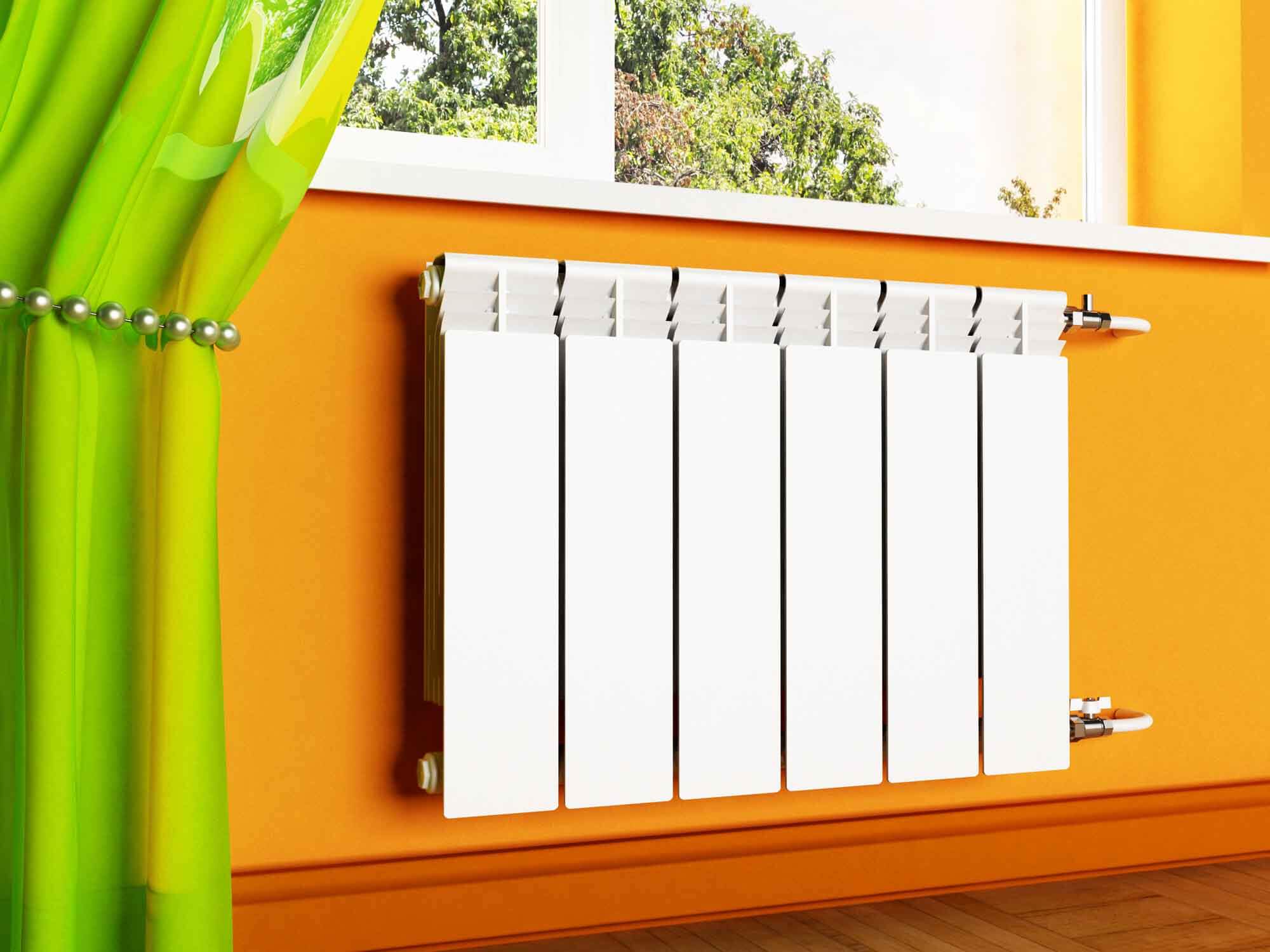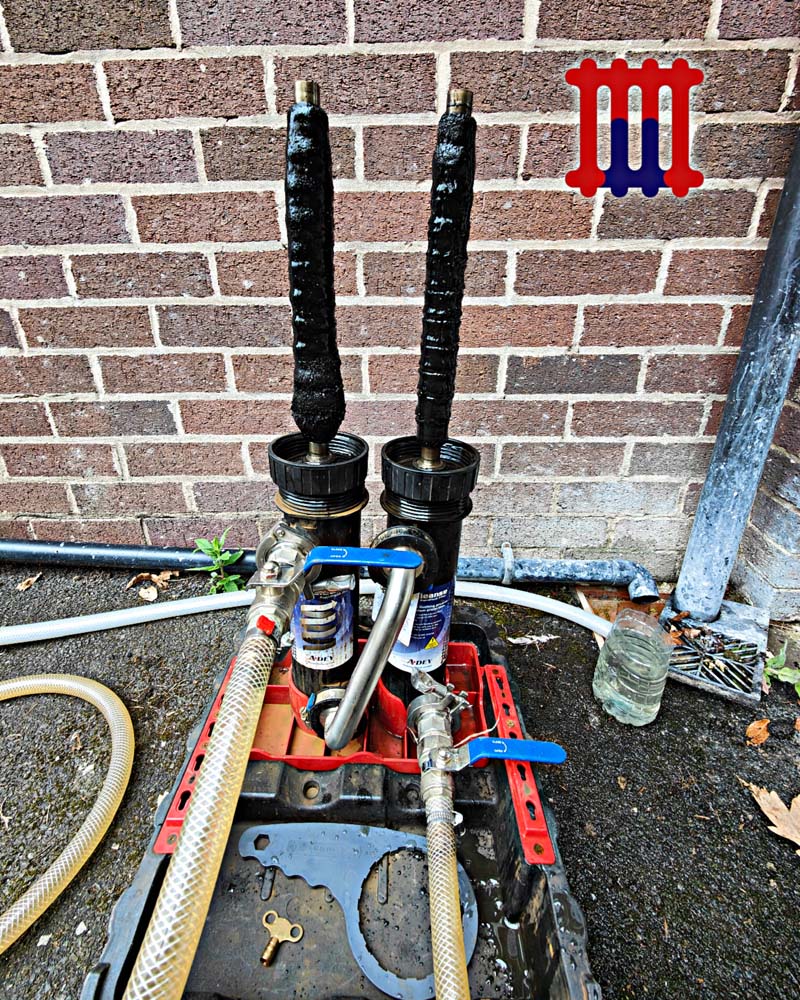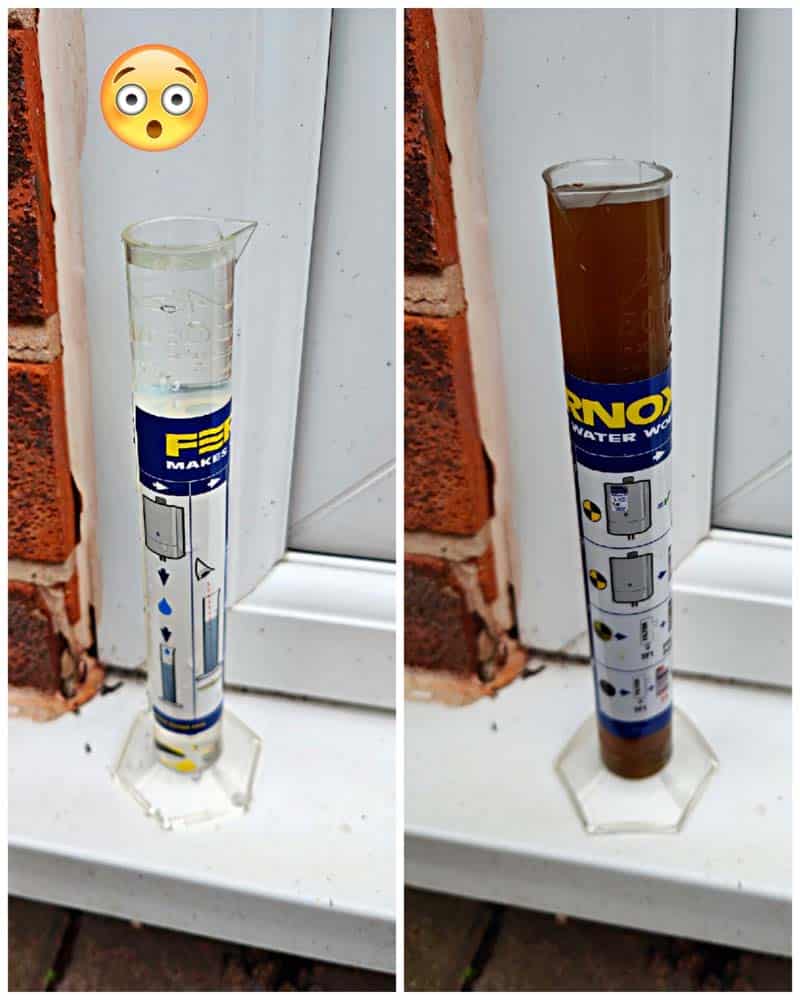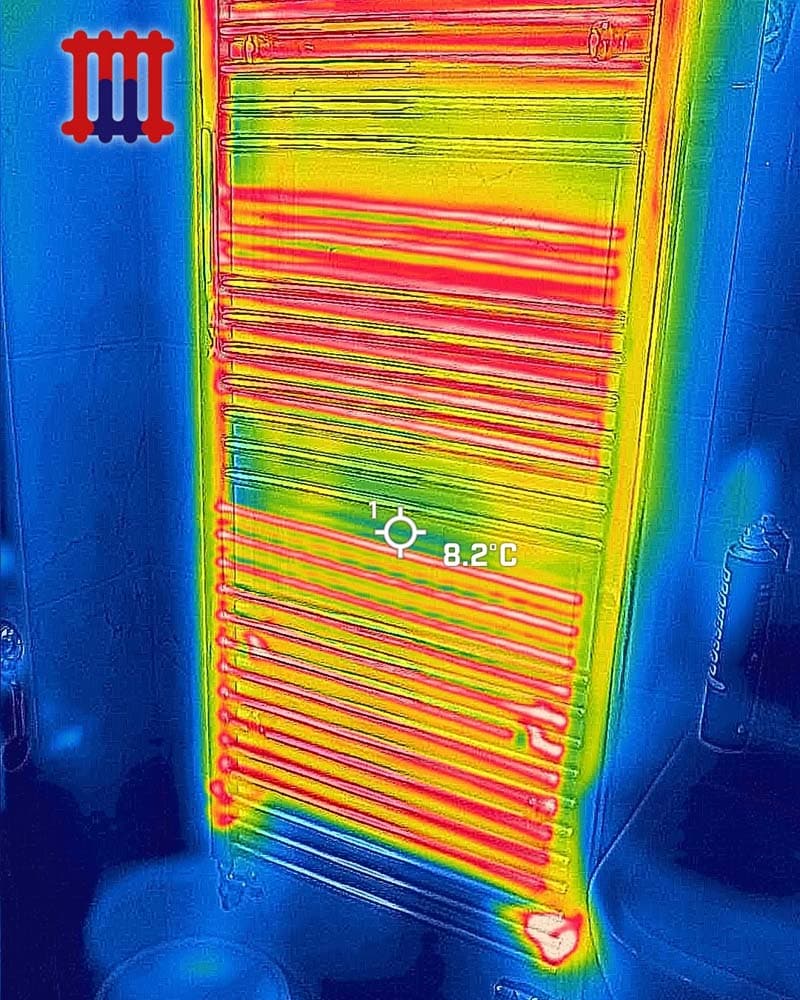How Much Does
A Powerflush Cost?
Power flushing is the process of cleaning the central heating system – including the radiator, pipes, and boiler itself – to improve its performance.
This involves flushing out all the debris and sludge that’s built up in your heating system over the years.
From improved performance and energy efficiency to fewer breakdowns, power flushing offers many benefits, but it’s important you’re aware of the costs before requesting our services.
To find out more about the cost of a power flush, or for a FREE, personalised quote, talk to our specialists today!

How Much Does A Powerflush Cost?
The Average cost of Powerflush in Domestic premises is usually about 400 - 800£. Powerflush in Commercial premises is more expensive and can reach several thousand pounds.
Let's talk in detail about how much does a powerflush
cost in various situations.
The cost of a power flush varies depending on a number of different things, such as:
Property type and size – The bigger your property, the more expensive a power flush cost will be.
Number of bedrooms – again, the more rooms in your home, the pricier a power flush will be.
Number of Radiators – the more radiators you have, the longer a power flush will take to perform, and so will cost you more.
Underfloor heating circuits – this can make power flushing much more complicated and time-consuming and may require specialist equipment.
Type of heating system – some systems are more complicated to flush than others, so therefore will be more expensive.
Of course, all companies are different – with some charging per job and others per hour. So, the cost of power flushing will also vary depending on the company you choose.
Prices can be more expensive for those who live in major cities, so this is another thing to keep in mind.
What’s included in the cost of power flushing?
Not only will you be paying for our time and expertise, but you'll also be paying for:
A full system check-up
Cleaning chemicals
Inhibitor (the liquid that helps prevent rust build-up in the future)
Radiator bleeding
Thermal imaging
Balancing heating system (the adjustment of your radiator valves to ensure consistent radiator temperature)
Water quality certificate
How often should I have my system power flushed?
If you’ve recently had a new boiler fitted and it’s under 4 years old, there’s no real need for regular power flushing.
After this point, you should be able to get away with power flushing radiators every 5-6 years, or every 8-10 years, but this depends on the quality of the materials used in your system and how well you take care of it.
Benefits of Poweflushing Heating System:
As we mentioned earlier, regular power flushing has many benefits for your central heating system:
- Reduced energy bills – After a power flush, homeowners have been able to save up to 40% on their subsequent energy bills.
- Increased heat output from your radiators – The gunk in your system’s pipes prevents your radiators from warming up properly, but you’ll feel the benefit once everything has been cleared
- Increased lifespan – Power flushing is a key part of central heating system maintenance, and if you keep up with it, your system could last you upwards of 15 years!
- Reduced risk of breakdowns – The majority of boiler breakdowns are caused by dirty water in your central heating system. Regular power flushes help clear the system and, therefore, prevent breakdowns.
- Corrosion prevention – A build-up of dirt and sludge in your central heating system pipes is the main cause of corrosion, so a power flush will, of course, help stop this from occurring.

Why hire an expert power flushing engineer?
If your central heating system isn’t working properly and you want to get it fixed, rather than replacing it altogether, power flushing is the best option.
However, it’s important to note that power flushing isn’t a ‘do-it-yourself’ kind of job, and you’ll need a professional engineer to do it for you. This is where we come in.
We have all the knowledge and tools required to carry out a power flush, and you can be confident that your central heating system is in the best hands with us.
Boasting a 5-star rating, our past clients have left countless glowing reviews – check them out and see for yourself why working with us is so great!
Is Power Flushing Always The Answer?
9 times out of 10, a power flush will solve any issues you’ve been experiencing with your central heating system.
However, a power flush won’t solve problems like pressure loss or faulty parts, so in these cases, you’ll have to look into alternative repair options to get your boiler back on the mend.
Something else you should take into consideration when deciding on whether or not to get a power flush is the age of your central heating system.
A boiler replacement may be more cost-effective than maintenance and repairs, especially if your system is older than 15 years and you’re having reoccurring issues.
How should I prepare for a power flush
All you need to do before our engineers arrive is switch off your boiler, open all the radiator valves, and shut off your water supply.
There’s no need to remove any of your radiators, as this would make the cleaning of the pipes almost impossible.
Doing this will help save us some time, but if you need any assistance, be sure to let us know and we’d be more than happy to help!
How does a powerflush work and how long does it take?
Typically, a power flush takes less than a day for our engineers to complete, but this depends on the size of your property and how many rooms/radiators you have.
Regardless of the number of radiators, the power flushing process will be the same.
First things first, we’ll connect a powerful pump directly to your central heating system – either through the pump head or circulation pump, depending on the type of boiler you have.
Once this pump is connected, we’ll flush a powerful chemical cleaner through the pipework to remove sludge buildup and destroy limescale, which should prevent rust buildup from reoccurring in the future.
After we’re sure we’ve dislodged all the build-up inside your pipes, we’ll force clean water through the pipes to remove the contaminated liquid from your system, before properly disposing of it.

What’s the difference between a chemical power flush and chemical flush?
Although power flushing and chemical flushing may sound the same, the processes do differ slightly.
During a central heating power flush, cleaning chemicals are pumped through your pipes to clear any build-ups of rust, limescale, and any other sludge or debris.
Chemical flushes, on the other hand, use gravity to flush the system and refill it – with the cleaning chemicals dispersed and left to mix throughout your central heating system for a few days.
A central heating system power flush is much more thorough and doesn’t need to be performed as often as a chemical flush. If you ask us, it’s a no-brainer.
How can I tell if my central heating system needs a power flush?
Ideally, you shouldn’t leave any longer than 5 years between power flushes, but if you can’t remember when your last one was done, there are a few red flags you can look out for to tell you it’s time:
Cold spots on your radiators, or hot pipes and cold radiators
Inconsistent flow of hot water
Radiators take longer than usual to heat up
Noisy boiler
Radiators need bleeding constantly and produce discoloured water when bled
Noticeable difference in radiator function
There’s no denying the benefits of regular power flushing, so if you happen to notice any of these signs, give our experts a call to get your next power flush booked.

What Are the Additional Costs of a Powerflush Process?
Is your heating system not working as it should? Cold spots or leaks might mean it needs a power flush. At Plumbisimo, we help homeowners restore consistent heating by improving the performance of their boilers and radiators. Our heating engineers ensure your system runs well, but additional costs can occur during power work. Below, we explain these costs to help you plan.
Equipment and Powerflush Machine Usage
A power flush machine clears blockages from pipes as well as radiators. The cost of the machine, the chemicals, and the other materials used are the expenses of using this equipment. This can be true if your home has many radiators and therefore requires more time and materials, which inflates the price of the service.
Labor Rates For Heating Engineers and Plumbers
The hourly rates paid to a plumber or heating engineer depend on the size and job. The larger the heating programmer system and the more radiators it has, the longer it may take to get a full flush and all associated labor. The cost of services is clear because the hourly rates are provided before the work starts, and no extra charges are a surprise.
Old Boiler Service or Boiler Installation Costs
Some existing boilers, especially older models, can still cause problems even with power flushing has been done. If you are still experiencing issues with your boiler, you may require a supply of brand-new boilers. A boiler service is always after the power flush to guarantee the system works correctly. These two services are extra and depend on the system‘s size, increasing the overall cost.

Replacement of Faulty Parts or Radiators
If your system constantly leaks, some parts must be replaced since they are no longer usable. Issues with a central heating pump or heat exchanger are typical. All these parts are required for steady heat generation. Our heating engineers can spot damaged parts during the power flush and advise on potential fixes.
Maintenance of Complex Systems
With the help of such suggestions and instructions, if it needs additional care, your heating system, such as a hot water immersion heater or heating programmer, etc. These parts must be well maintained so that your whole system can work efficiently. Depending on the system‘s state, a heating engineer can also advise the best ways of taking care of them.
Challenges with Cold Spots
It means that cold spots in radiators can persist even after the first power flush has been conducted. This way, the radiators may require another flushing round to overcome the blockage stubborn enough to elude the initial round. These additional costs are also incurred depending on the state of the system. We suggest searching for cold areas to see whether the power flush is successful.
Preparing for Future Expenses
Frequent cleaning after power flush work makes your system work efficiently as required. Cleaning pipes and radiators also influences avoiding blockages in the future. Regularly maintaining the pipelines hampers the need for other power flushes and diminishes the repair rate. This makes your heating system more efficient over time.
Ready to book your next powerflush work?
Need to book a power flush?
If you have problems with your central heating system and need help from a qualified heating engineer, or you need more information about the costs involved with power flushing, we’re here for you.
One of our highly qualified heating engineers would be more than happy to help.
Give us a call , or fill in our online contact form and we’ll be in touch with further details!

Frequently Asked Questions
If you can’t remember when you had your last power flush, there are some red flags you can be looking out for:
- Excessive banging or rattling sounds coming from your heating pump or boiler
- Radiators are slow to warm up
- Some radiators struggle to warm up more than others
- Discolored water, or no water at all, when bleeding
If you notice any of these signs, be sure to contact our expert power flush engineers today for a competitive, no-obligation quote or to book your appointment.
During a power flush, a powerful pump is connected to your central heating system – to the pump head or circulation pump depending on the type of boiler you have.
Once connected, this pump flushes a cocktail of chemicals through the pipework to dislodge all of the gunk clogged up within and prevent rust and limescale from wreaking havoc on your system in the future.
After everything has been cleared we’ll force clean water through your pipes to remove all traces of contaminated liquid from your system, before properly disposing of the waste.
Nine times out of ten, power flushing will solve all of your central heating issues – so it shouldn’t be seen as an optional maintenance job.
If your boiler is under 15 years old, power flushing is the most effective way to keep it running at its full capacity and should help prolong its lifespan. Without it, regular repairs are highly likely, and you may need to replace your central heating system sooner than necessary. So, when you consider these costs, compared to the cost of a power flush, it’s more than worth it.
However, a power flush won't solve issues with pressure loss or faulty parts – so it may be worth looking into other repair options or replacing your boiler altogether.
Here at Powerflush Geek, we pride ourselves on being able to offer a high-quality, fully comprehensive power flushing service.
System check-ups, cleaning chemicals, radiator bleeding, thermal imaging, heating system balancing, and water quality certificates are all included in the cost of power flushing – and at some of the most affordable prices in the North West, you can’t afford to miss out!
To find out more about how we can help, give us a call today on 07444 203 403 or email us at info@powerflush-geek.co.uk and we’ll be in touch shortly.
Contact Us Today for a More Elaborate Quote
Do you need powerflushing? Get in touch with Plumbisimo right now and obtain specialist assistance without hidden charges. The heating engineers who will work with you will provide you with a breakdown of the costs beforehand. You can contact us on 07444 203403 or by emailing info@powerflush-geek.co.uk to book your service. We shall ensure that your heating system is in the right condition.

